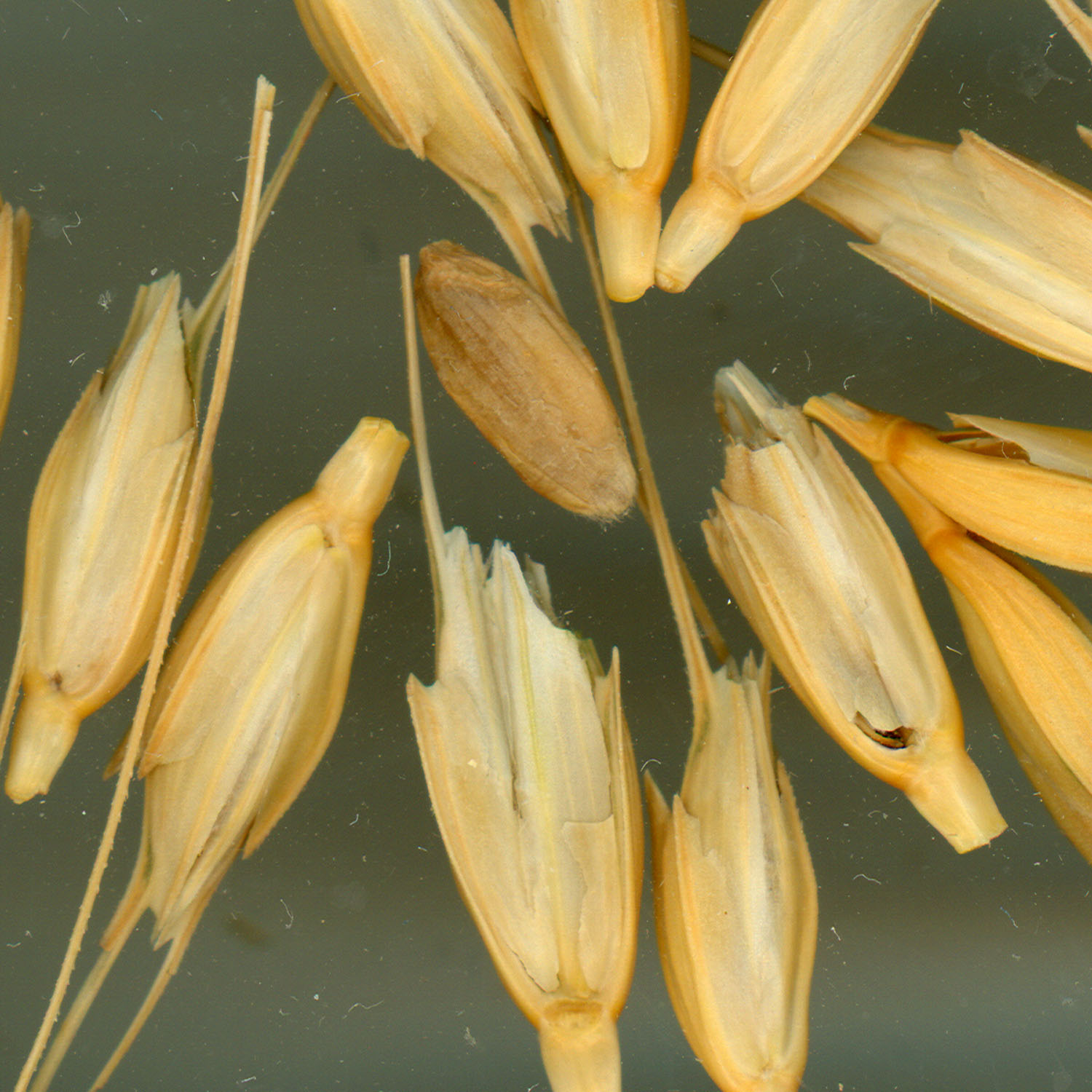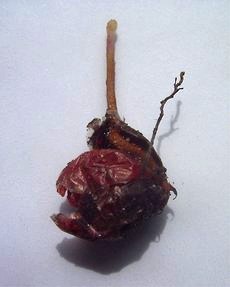|
Johannes Groenland
Johannes Groenland (also spelled Grönland and called "Jean Groenland," 1824–1891) was a German botanist, horticulturist, and microscopist. Early life He was born on 8 April 1824 in Altona, a borough of Hamburg that was part of the Duchy of Holstein at that time. He was the son of Johann Friedrich Grönland, a German organist and music teacher.Magnus, Paul. (1892)Nachruf bituary in German ''Verhandlungen des Botanischen Vereins für die Provinz Brandenburg, 33'', 49-51. Retrieved 14 September 2012 froBiodiversity Heritage Library Career Early career, First Schleswig War Groenland was trained in pharmacology in his youth and served as a pharmacist in Altona, Hamburg, and Jena in his early 20s. In 1849 he joined the Schleswig-Holstein army to fight in the First Schleswig War. Life in Paris After the war, Groenland moved to Paris to work as an assistant to Louis de Vilmorin, a French biologist and horticulturist who was also a member of the family firm Vilmorin-Andrieux.Stafleu ... [...More Info...] [...Related Items...] OR: [Wikipedia] [Google] [Baidu] |
Altona, Hamburg
Altona (), also called Hamburg-Altona, is the westernmost urban borough (''Bezirk'') of the German city state of Hamburg, on the right bank of the Elbe river. From 1640 to 1864, Altona was under the administration of the Danish monarchy. Altona was an independent borough until 1937. In 2016 the population was 270,263. History Altona was founded in 1535 as a village of fishermen in what was then Holstein-Pinneberg. In 1640, Altona came under Danish rule as part of Holstein-Glückstadt, and in 1664 was granted municipal rights by the Danish King Frederik III, who then ruled in personal union as Duke of Holstein. Altona was one of the Danish monarchy's most important harbor towns. The railroad from Altona to Kiel, the Hamburg-Altona–Kiel railway ( da, link=no, Christian VIII Østersø Jernbane), was opened in 1844. Because of severe restrictions on the number of Jews allowed to live in Hamburg until 1864 (with the exception of 1811–1815), a major Jewish community develop ... [...More Info...] [...Related Items...] OR: [Wikipedia] [Google] [Baidu] |
Triticum
Wheat is a grass widely cultivated for its seed, a cereal grain that is a worldwide staple food. The many species of wheat together make up the genus ''Triticum'' ; the most widely grown is common wheat (''T. aestivum''). The archaeological record suggests that wheat was first cultivated in the regions of the Fertile Crescent around 9600 BCE. Botanically, the wheat kernel is a type of fruit called a caryopsis. Wheat is grown on more land area than any other food crop (, 2014). World trade in wheat is greater than for all other crops combined. In 2020, world production of wheat was , making it the second most-produced cereal after maize. Since 1960, world production of wheat and other grain crops has tripled and is expected to grow further through the middle of the 21st century. Global demand for wheat is increasing due to the unique viscoelastic and adhesive properties of gluten proteins, which facilitate the production of processed foods, whose consumption is increas ... [...More Info...] [...Related Items...] OR: [Wikipedia] [Google] [Baidu] |
19th-century German Botanists
The 19th (nineteenth) century began on 1 January 1801 ( MDCCCI), and ended on 31 December 1900 ( MCM). The 19th century was the ninth century of the 2nd millennium. The 19th century was characterized by vast social upheaval. Slavery was abolished in much of Europe and the Americas. The First Industrial Revolution, though it began in the late 18th century, expanding beyond its British homeland for the first time during this century, particularly remaking the economies and societies of the Low Countries, the Rhineland, Northern Italy, and the Northeastern United States. A few decades later, the Second Industrial Revolution led to ever more massive urbanization and much higher levels of productivity, profit, and prosperity, a pattern that continued into the 20th century. The Islamic gunpowder empires fell into decline and European imperialism brought much of South Asia, Southeast Asia, and almost all of Africa under colonial rule. It was also marked by the collapse of the large S ... [...More Info...] [...Related Items...] OR: [Wikipedia] [Google] [Baidu] |
People From The Duchy Of Holstein
A person ( : people) is a being that has certain capacities or attributes such as reason, morality, consciousness or self-consciousness, and being a part of a culturally established form of social relations such as kinship, ownership of property, or legal responsibility. The defining features of personhood and, consequently, what makes a person count as a person, differ widely among cultures and contexts. In addition to the question of personhood, of what makes a being count as a person to begin with, there are further questions about personal identity and self: both about what makes any particular person that particular person instead of another, and about what makes a person at one time the same person as they were or will be at another time despite any intervening changes. The plural form "people" is often used to refer to an entire nation or ethnic group (as in "a people"), and this was the original meaning of the word; it subsequently acquired its use as a plural form of per ... [...More Info...] [...Related Items...] OR: [Wikipedia] [Google] [Baidu] |
People From Altona, Hamburg
A person ( : people) is a being that has certain capacities or attributes such as reason, morality, consciousness or self-consciousness, and being a part of a culturally established form of social relations such as kinship, ownership of property, or legal responsibility. The defining features of personhood and, consequently, what makes a person count as a person, differ widely among cultures and contexts. In addition to the question of personhood, of what makes a being count as a person to begin with, there are further questions about personal identity and self: both about what makes any particular person that particular person instead of another, and about what makes a person at one time the same person as they were or will be at another time despite any intervening changes. The plural form "people" is often used to refer to an entire nation or ethnic group (as in "a people"), and this was the original meaning of the word; it subsequently acquired its use as a plural form of per ... [...More Info...] [...Related Items...] OR: [Wikipedia] [Google] [Baidu] |
1891 Deaths
Events January–March * January 1 ** Paying of old age pensions begins in Germany. ** A strike of 500 Hungarian steel workers occurs; 3,000 men are out of work as a consequence. **Germany takes formal possession of its new African territories. * January 2 – A. L. Drummond of New York is appointed Chief of the Treasury Secret Service. * January 4 – The Earl of Zetland issues a declaration regarding the famine in the western counties of Ireland. * January 5 **The Australian shearers' strike, that leads indirectly to the foundation of the Australian Labor Party, begins. **A fight between the United States and Indians breaks out near Pine Ridge agency. ** Henry B. Brown, of Michigan, is sworn in as an Associate Justice of the Supreme Court. **A fight between railway strikers and police breaks out at Motherwell, Scotland. * January 6 – Encounters continue, between strikers and the authorities at Glasgow. * January 7 ** General Miles' force ... [...More Info...] [...Related Items...] OR: [Wikipedia] [Google] [Baidu] |
1824 Births
Eighteen or 18 may refer to: * 18 (number), the natural number following 17 and preceding 19 * one of the years 18 BC, AD 18, 1918, 2018 Film, television and entertainment * ''18'' (film), a 1993 Taiwanese experimental film based on the short story ''God's Dice'' * ''Eighteen'' (film), a 2005 Canadian dramatic feature film * 18 (British Board of Film Classification), a film rating in the United Kingdom, also used in Ireland by the Irish Film Classification Office * 18 (''Dragon Ball''), a character in the ''Dragon Ball'' franchise * "Eighteen", a 2006 episode of the animated television series ''12 oz. Mouse'' Music Albums * ''18'' (Moby album), 2002 * ''18'' (Nana Kitade album), 2005 * '' 18...'', 2009 debut album by G.E.M. Songs * "18" (5 Seconds of Summer song), from their 2014 eponymous debut album * "18" (One Direction song), from their 2014 studio album ''Four'' * "18", by Anarbor from their 2013 studio album '' Burnout'' * "I'm Eighteen", by Alice Cooper common ... [...More Info...] [...Related Items...] OR: [Wikipedia] [Google] [Baidu] |
Potamogetonaceae
The Potamogetonaceae, commonly referred to as the pondweed family, is an aquatic family of monocotyledonous flowering plants. The roughly 110 known species are divided over six genera. The largest genus in the family by far is ''Potamogeton'', which contains about 100 species. The family has a subcosmopolitan distribution, and is considered to be one of the most important angiosperm groups in the aquatic environment because of its use as food and habitat for aquatic animals.Haynes, R. R. 1975. A revision of North American ''Potamogeton'' subsection Pusilli (Potamogetonaceae). Rhodora 76: 564--64 Taxonomy The Potamogetonaceae are currently placed in the early diverging monocot order Alismatales by the Angiosperm Phylogeny Group. Their concept of the family includes the plants sometimes treated in the separate family Zannichelliaceae, but excludes the genus '' Ruppia''. So circumscribed, the family currently consists of six genera: ''Althenia'', ''Groenlandia'', ''Lepilaena'', '' ... [...More Info...] [...Related Items...] OR: [Wikipedia] [Google] [Baidu] |
Groenlandia
''Groenlandia'' is a monotypic genus of aquatic plants (pondweed) of the family Potamogetonaceae. The only species in the genus is ''Groenlandia densa''. Opposite-leaved pondweed is a common name for this plant. It is native to much of Europe, western Asia and Maghreb The Maghreb (; ar, الْمَغْرِب, al-Maghrib, lit=the west), also known as the Arab Maghreb ( ar, المغرب العربي) and Northwest Africa, is the western part of North Africa and the Arab world. The region includes Algeria, ... in Africa; despite its name it is not found in Greenland. References {{Taxonbar, from=Q163477 Freshwater plants Potamogetonaceae Monotypic Alismatales genera ... [...More Info...] [...Related Items...] OR: [Wikipedia] [Google] [Baidu] |
Marie Maxime Cornu
Marie Maxime Cornu (July 16, 1843, in Orléans – April 3, 1901 in Paris) was a French botanist and mycologist. He was a younger brother of physicist Alfred Cornu (1841-1902). He studied at the École normale supérieure, and in 1872 received his doctorate in natural sciences. He served as ''aide-naturaliste'' at Museum National d'Histoire Naturelle in Paris, where from 1876 he worked as a lecturer of botany.Marie Maxime Sociétés savantes de France From 1884 to 1901 he was chair of horticulture at the museum. In 1897 he was named president of the Société botanique de France. He is remembered for his research of cryptogams, as well as his investigations involving agents of plant diseases, in particular ''Phylloxera vastatrix'', a pest that caused extensive damage to French vineyards and negatively affected wine production. In 189 ... [...More Info...] [...Related Items...] OR: [Wikipedia] [Google] [Baidu] |
Drosera
''Drosera'', which is commonly known as the sundews, is one of the largest genus, genera of carnivorous plants, with at least 194 species. 2 volumes. These members of the family Droseraceae lure, capture, and digest insects using stalked mucilage, mucilaginous glands covering their leaf surfaces. The insects are used to supplement the poor mineral nutrition of the soil in which the plants grow. Various species, which vary greatly in size and form, are native to every continent except Antarctica.McPherson, S.R. 2008. ''Glistening Carnivores''. Redfern NaturalHistory Productions Ltd., Poole. Charles Darwin performed much of the early research into ''Drosera'', engaging in a long series of experiments with Drosera rotundifolia which were the first to confirm carnivory in plants. In an 1860 letter, Darwin wrote, “…at the present moment, I care more about ''Drosera'' than the origin of all the species in the world.” Both the botanical name (from the Ancient Greek, Greek δρ ... [...More Info...] [...Related Items...] OR: [Wikipedia] [Google] [Baidu] |



_1938.jpg)


